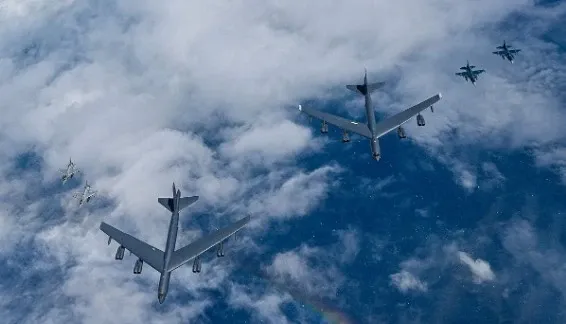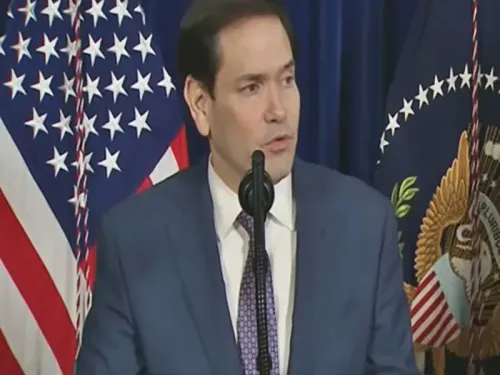Why is North Korea Opposing South Korea-US-Japan Air Drills?

Synopsis
Key Takeaways
- North Korea opposes joint military drills by South Korea, the US, and Japan.
- Claims of increased military tensions on the Korean Peninsula.
- The drills are part of a strategy to counter North Korea's nuclear threats.
- Involvement of strategic bombers indicates heightened military readiness.
- Ongoing trilateral cooperation emphasizes security collaboration.
Seoul, July 13 (NationPress) North Korea has expressed strong disapproval of the recent joint air exercises carried out by South Korea, the US, and Japan, asserting that these military maneuvers represent "the primary danger factors exacerbating military tensions" on the Korean Peninsula and in the surrounding areas.
In a statement issued through the Korean Central News Agency (KCNA), the North Korean Defence Ministry's policy office voiced "serious concerns" about the ongoing hostile actions that they claim ignore North Korea's security apprehensions, warning of severe repercussions for the regional climate.
On Friday, the Defence Ministry of South Korea announced that the three nations conducted air drills over international waters adjacent to the southern South Korean island of Jeju, which included the deployment of at least one US B-52H bomber—the strategic bomber's inaugural appearance near the Korean Peninsula this year, as reported by Yonhap news agency.
The North Korean representative further accused the trilateral military alliance of having "completely transformed into a nuclear-oriented triangular military alliance".
North Korea's statement insisted that the "irresponsible actions" of the US, Japan, and South Korea should be monitored and prevented as they continuously escalate tensions and dangers on the Korean Peninsula.
They emphasized that "it is our legitimate sovereign right to implement countermeasures against provocative military actions, including the enhancement of a multilateral military alliance that threatens regional security and the execution of clearly aggressive joint military drills."
On July 11, the three countries engaged in combined air drills on Friday as part of their initiative to fortify their unified response to North Korea's nuclear and missile threats, according to South Korea's Defence Ministry.
The exercises occurred over international waters near the southern South Korean island of Jeju and involved at least one US B-52H bomber, alongside South Korea's KF-16 and Japan's F-2 fighters, as stated by the Ministry.
This marked the first deployment of the strategic bomber close to the Korean Peninsula this year.
According to a statement, "the three nations will collaborate closely to deter and respond to North Korea's threats while maintaining trilateral training."
The drills coincided with a meeting of top military officials from the three countries in Seoul, aimed at discussing the security situation and enhancing their trilateral defense cooperation.
This occurred less than one month after South Korea, the US, and Japan held joint aerial drills on June 18, marking the first such exercise under the Lee Jae Myung administration.










